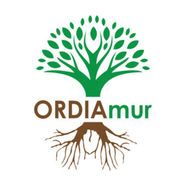Nematode–Microbe Complexes in Soils Replanted with Apple (2022.0)
Kanfra X., Wrede A., Moll J., Heuer H.
Microorganisms, 10 (1), 157
doi:10.3390/microorganisms10010157
Abstract
Apple replant disease is a severe problem in orchards and tree nurseries. Evidence for the involvement of a nematode–microbe disease complex was reported. To search for this complex, plots with a history of apple replanting, and control plots cultivated for the first time with apple were sampled in two fields in two years. Shoot weight drastically decreased with each replanting. Amplicon sequencing of the nematode community and co-extracted fungal and bacterial communities revealed significant differences between replanted and control plots. Free-living nematodes of the genera Aphelenchus and Cephalenchus and an unidentified Dorylaimida were associated with replanted plots, as indicated by linear discriminant analysis effect size. Among the co-extracted fungi and bacteria, Mortierella and Methylotenera were most indicative of replanting. Some genera, mostly Rhabditis, Streptomyces and a fungus belonging to the Chaetomiaceae indicated healthy control plots. Isolating and investigating the putative disease complexes will help to understand and alleviate stress-induced root damage of apple in replanted soil.
